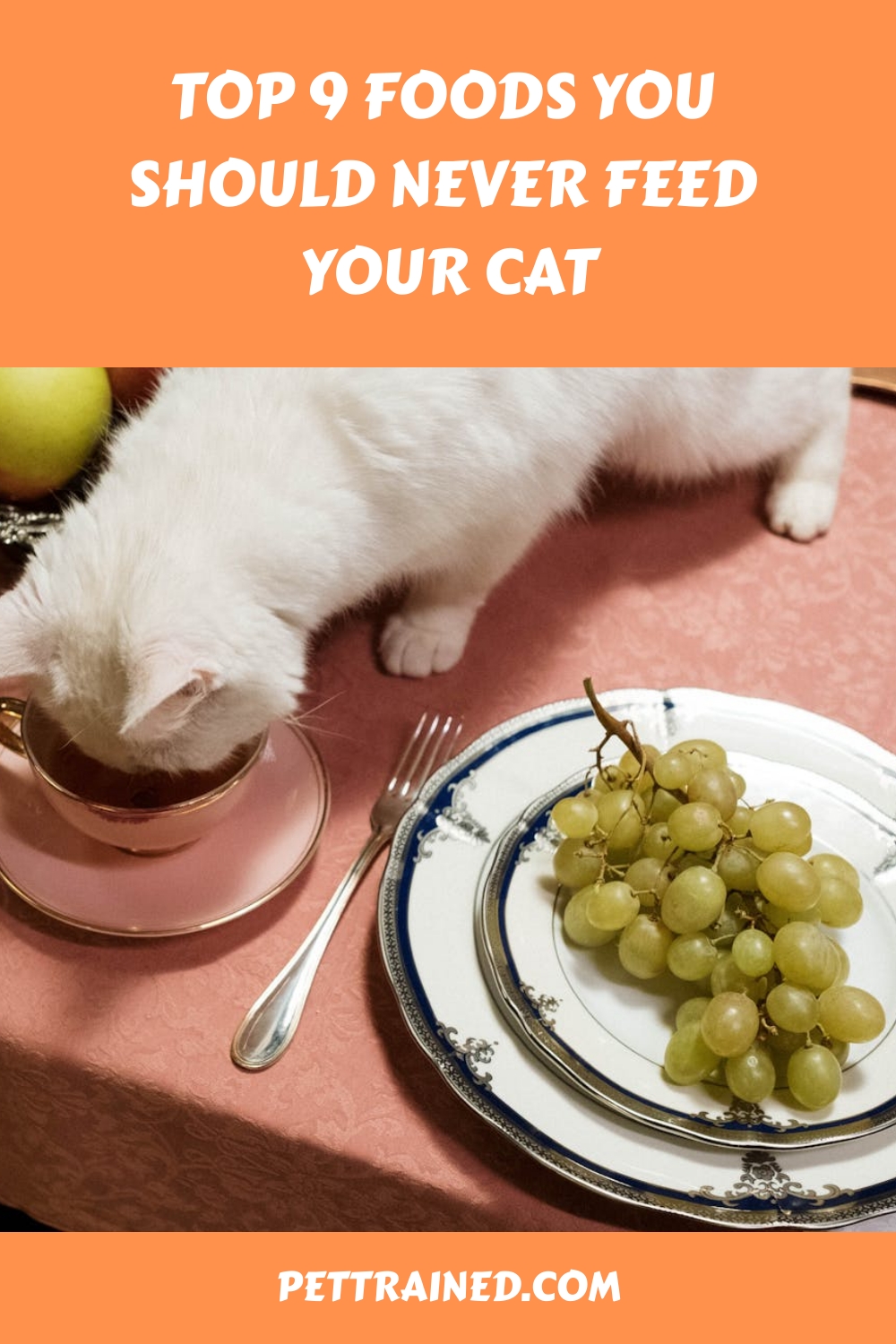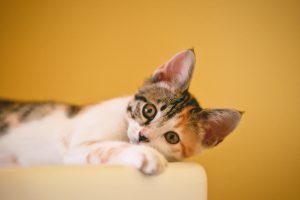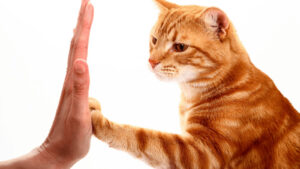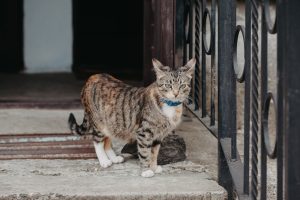Feeding your cat the wrong foods can be a catastrophic mistake, leading to severe health issues. You might think that a small piece of chocolate or a nibble of raw fish is harmless, but these choices can be dangerous.
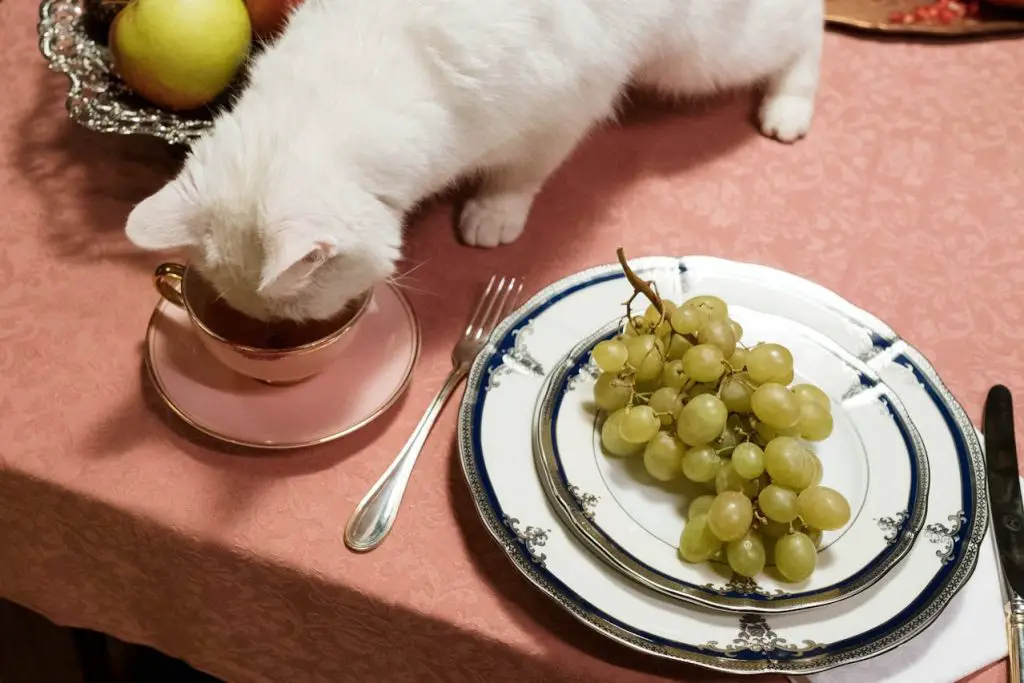
Do you know which common household foods are potentially lethal for your feline friend? From onions and garlic to caffeine and alcohol, the risks are many. Understanding these hidden dangers is essential if you want to keep your cat safe and healthy.
Let’s uncover which foods you should absolutely avoid.
Table of Contents
1. Chocolate
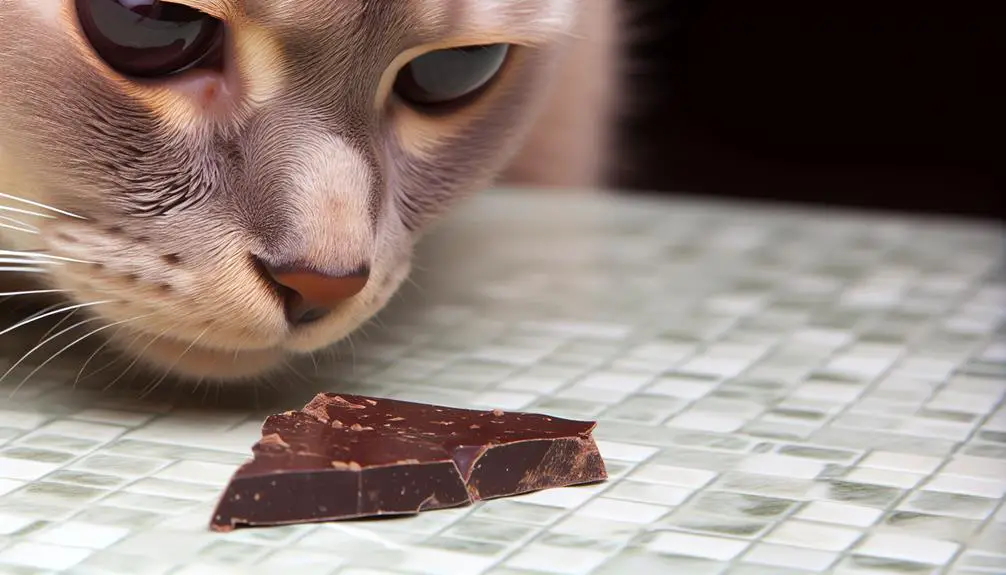
Chocolate contains theobromine and caffeine, both of which are toxic to cats and can lead to severe health issues. These toxic compounds can cause a range of symptoms, including vomiting, diarrhea, increased heart rate, and seizures.
Even small amounts of chocolate can be dangerous, and the risk escalates with the cat’s size and the chocolate type. Dark chocolate and baking chocolate are particularly potent.
This post contains affiliate links. However all the information provided on this site are my own honest opinions. See more in Disclaimer.
If your cat experiences accidental ingestion of chocolate, immediate veterinary intervention is essential. Studies have shown that theobromine is metabolized very slowly in cats, exacerbating its toxic effects.
Always make sure chocolate and chocolate-containing products are securely stored away from your cat’s reach to prevent any potentially life-threatening situations.
2. Onions and Garlic
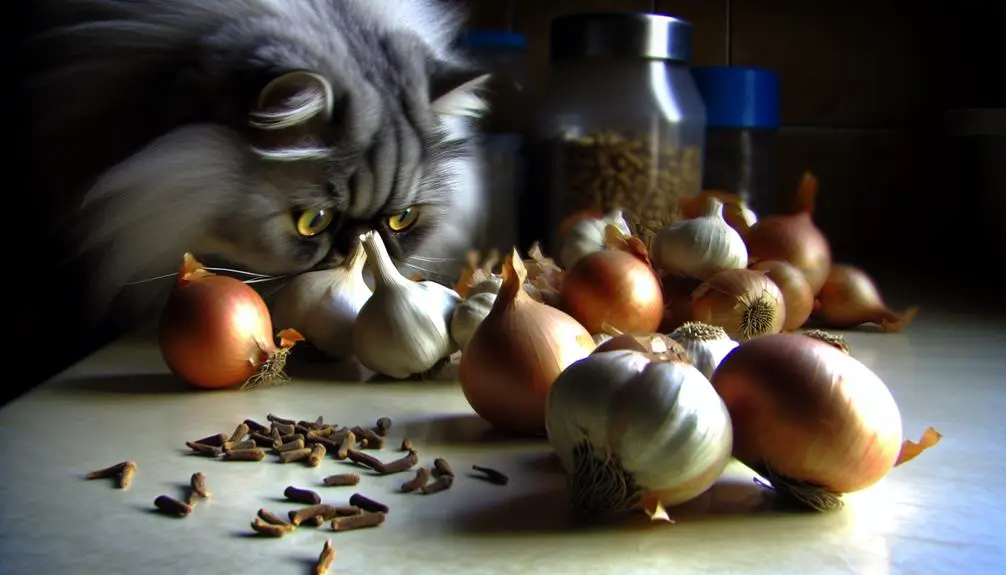
Containing compounds like thiosulfate, onions and garlic are highly toxic to cats and can lead to severe health issues such as hemolytic anemia. When ingested, these toxic compounds damage red blood cells, reducing their ability to carry oxygen. Even small amounts can cause significant harm.
Symptoms of poisoning include lethargy, pale gums, and rapid breathing. Additionally, onions and garlic can cause digestive issues, such as vomiting and diarrhea, exacerbating the cat’s condition. It’s essential to keep foods containing these ingredients away from your feline friend.
Many processed foods and seasonings also contain onion or garlic powder, making them equally dangerous. Always check ingredient labels carefully to safeguard your cat’s safety. Avoid any exposure to these harmful substances.
3. Grapes and Raisins
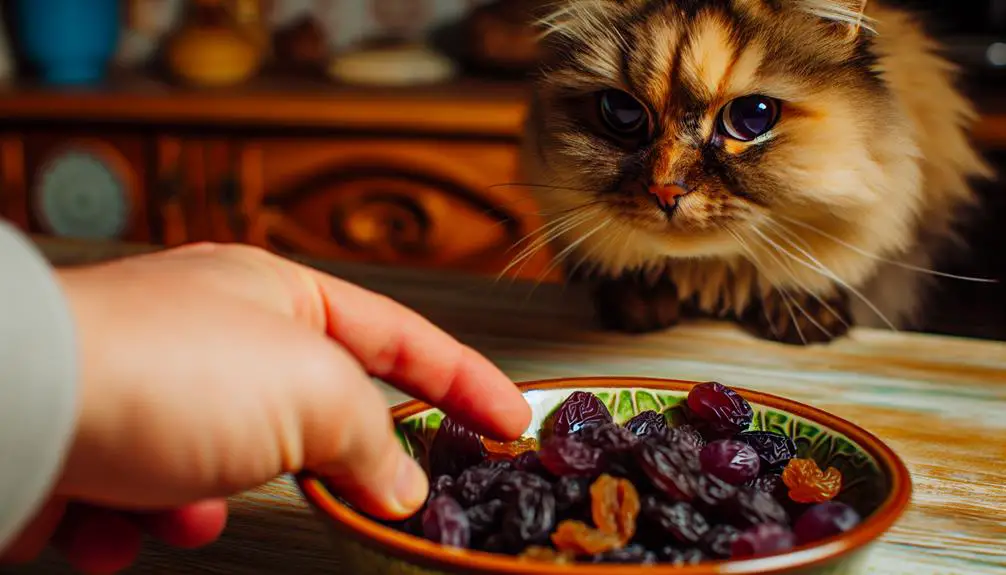
Equally critical to your cat’s health are grapes and raisins, which can induce acute kidney failure even in small quantities. Veterinary studies have shown that ingestion of these fruits can result in severe renal impairment. Symptoms of kidney failure may include lethargy, increased thirst, and frequent urination.
Also See:
Additionally, digestive distress such as vomiting and diarrhea often precedes these more severe symptoms, offering an early warning sign. It’s essential to be vigilant, as even a tiny amount can be toxic. If you suspect your cat has consumed grapes or raisins, seek immediate veterinary care.
Timely intervention is essential to mitigate potential kidney damage and improve your cat’s prognosis. Always keep these foods out of your cat’s reach.
4. Alcohol
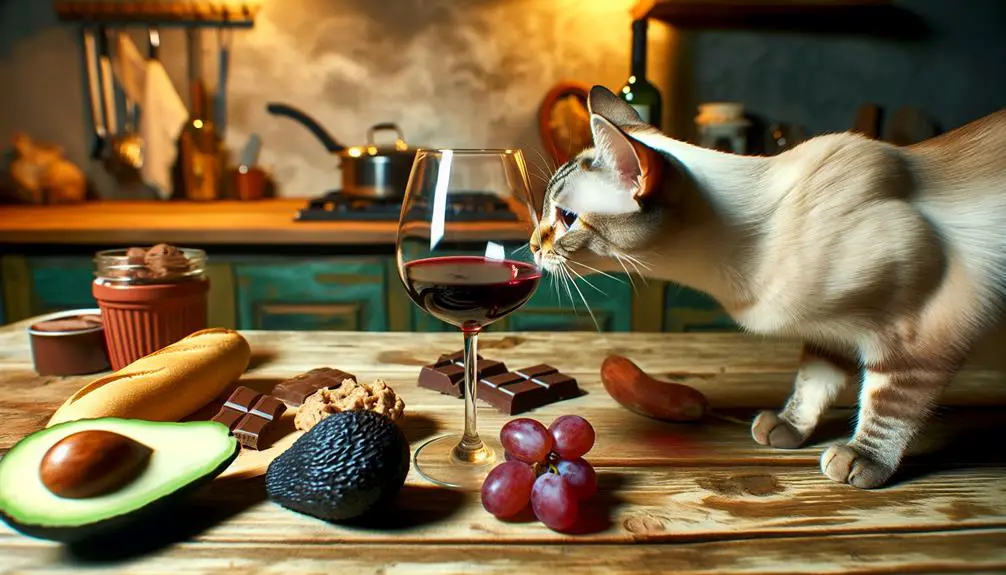
Even in small amounts, alcohol can cause serious harm to your cat’s central nervous system and liver. Fermented beverages contain ethanol, a potent toxin for felines.
Ethanol poisoning can occur rapidly, leading to severe health complications. As a responsible pet owner, you should be mindful of the risks associated with alcohol ingestion.
Central Nervous System Depression: Ethanol disrupts neurotransmitter function, causing lethargy, disorientation, and potential seizures.
Liver Damage: Cats metabolize ethanol poorly, leading to acute liver failure even with minimal exposure.
Respiratory Issues: In severe cases, ethanol poisoning can depress respiratory function, resulting in difficulty breathing or even respiratory arrest.
Always make sure that fermented beverages are stored safely away from your curious feline.
5. Caffeine
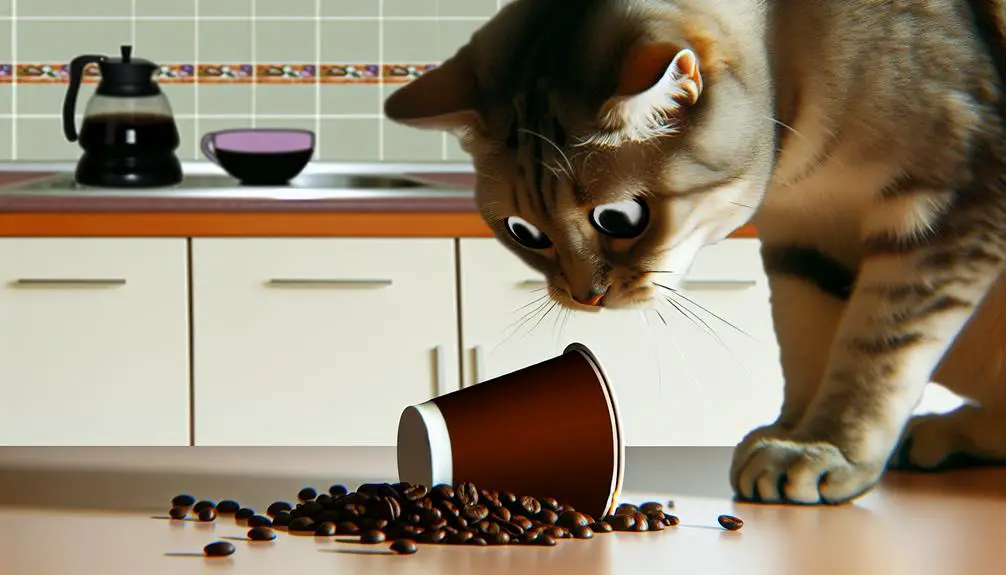
Caffeine is a potent stimulant that can cause severe cardiovascular and nervous system issues in cats. When ingested, it can lead to heart palpitations, which are irregular heartbeat patterns that can be life-threatening.
Additionally, caffeine can induce hyperactivity symptoms such as restlessness, tremors, and rapid breathing. Even small amounts found in coffee, tea, chocolate, or certain medications can be toxic.
According to veterinary toxicology reports, caffeine toxicity manifests quickly, often within 30 to 60 minutes of ingestion.
Immediate veterinary intervention is vital to manage the symptoms and prevent long-term damage. Therefore, it’s important to keep all caffeine-containing products well out of your cat’s reach to ensure their safety and well-being.
6. Raw Eggs
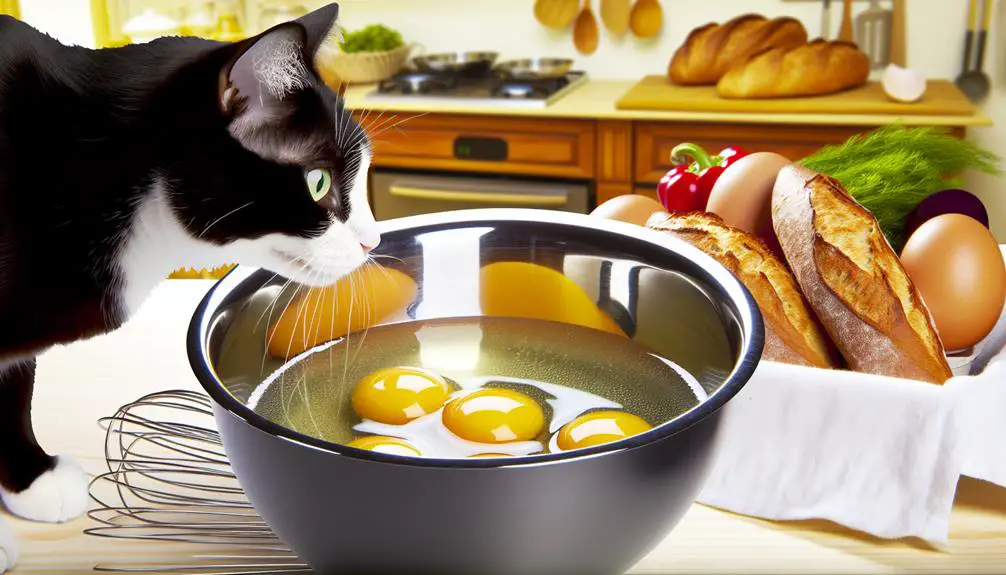
Despite their high protein content, raw eggs pose significant health risks to cats due to the potential presence of harmful bacteria such as Salmonella and E. coli. Feeding your cat raw eggs can lead to serious complications.
Here are the main concerns:
- Salmonella risk: Ingesting raw eggs can expose your cat to Salmonella, causing gastrointestinal distress, fever, and lethargy.
- Biotin deficiency in cats: Raw egg whites contain avidin, an enzyme that inhibits the absorption of biotin (vitamin B7), leading to skin and coat problems.
- Bacterial infection: E. coli and other pathogens in raw eggs can cause severe infections, compromising your cat’s immune system.
Always opt for cooked eggs if you wish to share this protein source with your feline friend.
7. Raw Fish
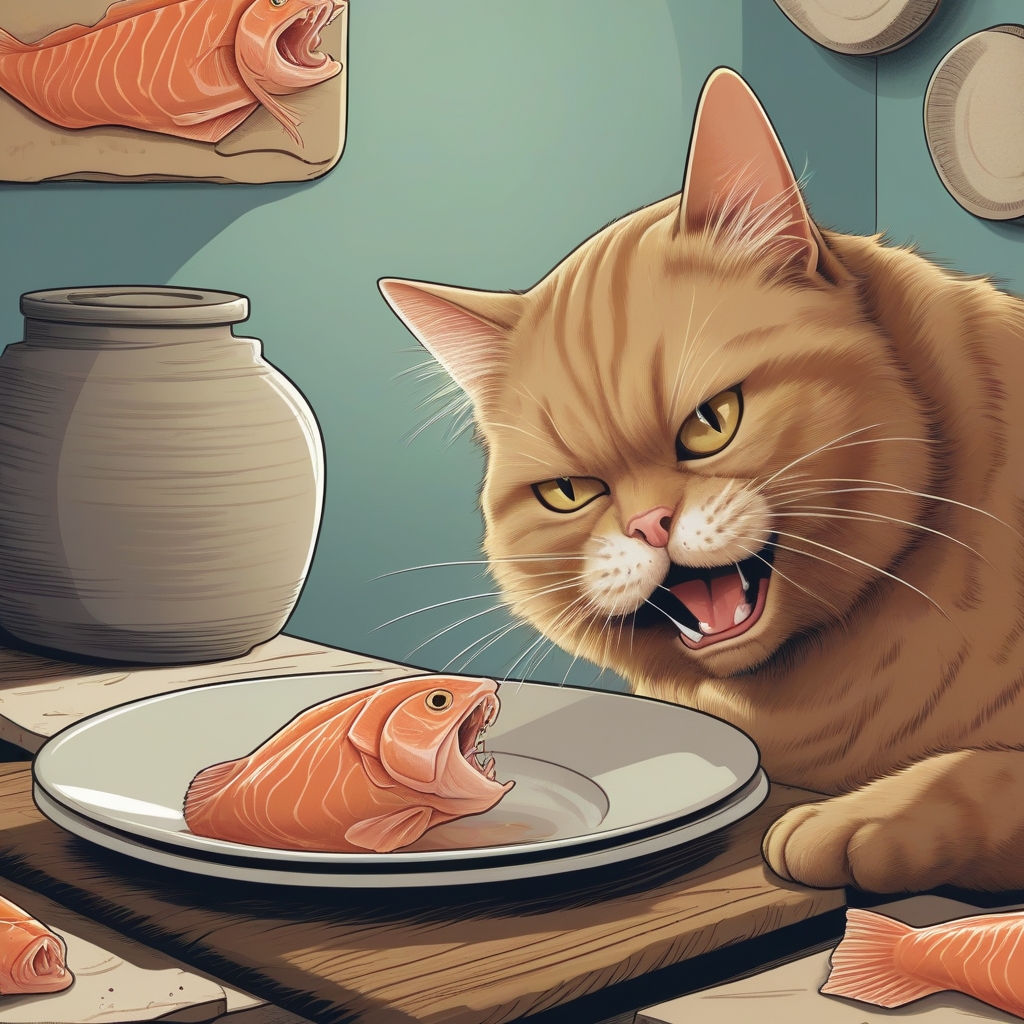
Feeding your cat raw fish can expose them to harmful parasites and thiamine deficiency, leading to severe neurological and gastrointestinal issues. Sushi consumption by felines is particularly risky due to the presence of fish parasites like anisakis, which can cause symptoms such as vomiting, diarrhea, and abdominal pain.
Additionally, raw fish contains an enzyme called thiaminase, which breaks down thiamine (vitamin B1) in your cat’s body. Thiamine deficiency can result in neurological disorders, including seizures and ataxia. Clinical studies have shown that cats require adequate levels of thiamine for proper nervous system function.
Hence, it’s important to avoid feeding your cat raw fish to prevent these potentially life-threatening conditions and promote their overall health and well-being.
8. Bones
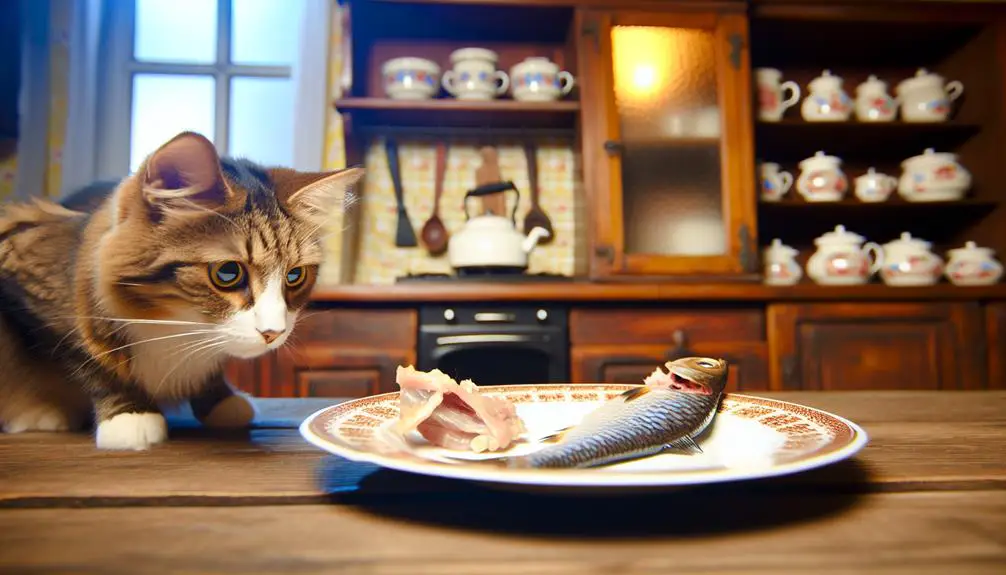
Consuming bones can pose serious health risks to your cat, including choking hazards, dental fractures, and gastrointestinal obstructions. While it might seem natural to give bones to your feline, the dangers far outweigh any perceived benefits.
Here’s why you should avoid bones:
- Choking Hazards: Small bones or fragments can lodge in your cat’s throat, leading to suffocation or severe distress.
- Sharp Fragments: Splintered bones can puncture the gastrointestinal tract, causing infections or life-threatening conditions like peritonitis.
Stick to cat-safe treats to keep your pet healthy and safe.
9. Dairy Products
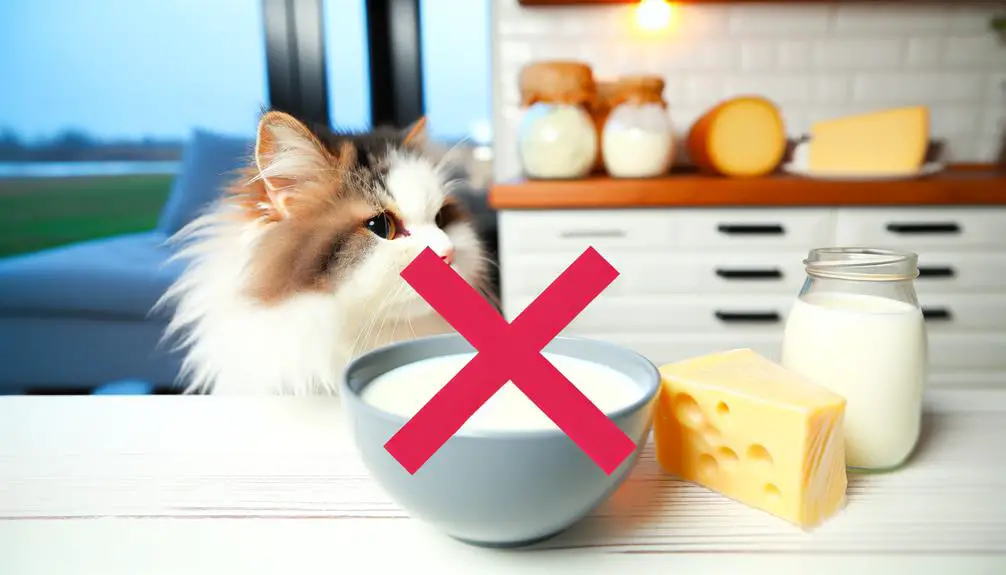
Most cats are lactose intolerant, making dairy products a poor choice for their diet. When a cat consumes dairy, it lacks the lactase enzyme necessary to break down lactose, leading to lactose intolerance. This condition results in various digestive issues, such as diarrhea, vomiting, and abdominal discomfort.
While it’s a common misconception that cats enjoy milk, offering it can actually harm their gastrointestinal health. Studies have shown that even small amounts of dairy can trigger adverse reactions in felines. Hence, it’s important to avoid giving your cat any form of dairy, including milk, cheese, and yogurt.
Trending in Cats:
Instead, provide water and specialized cat food to make sure they receive proper nutrition without risking digestive complications.
